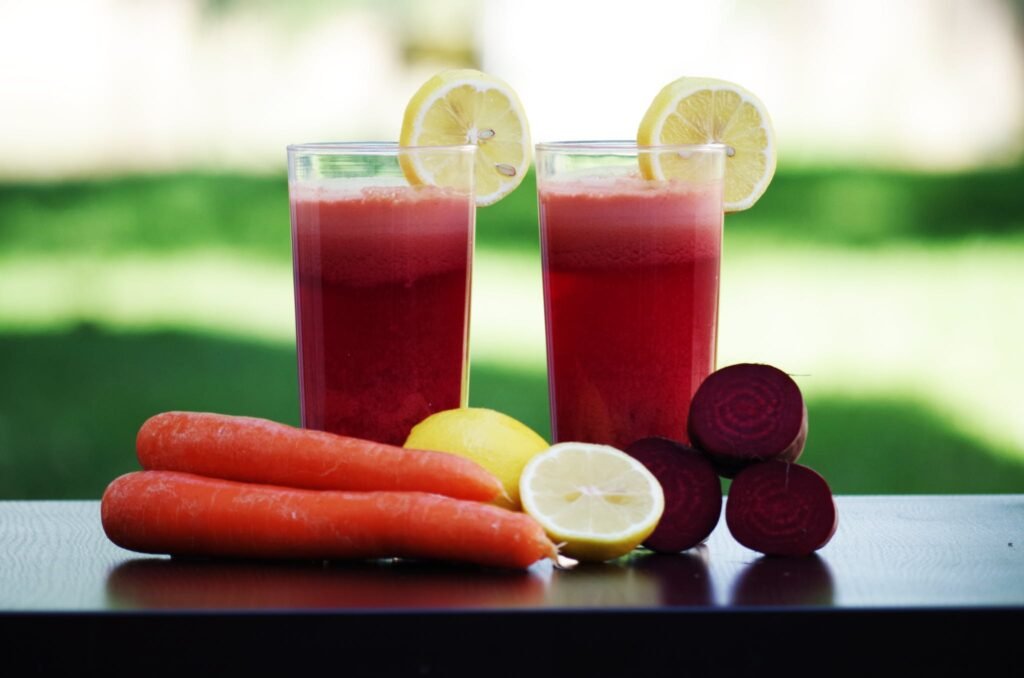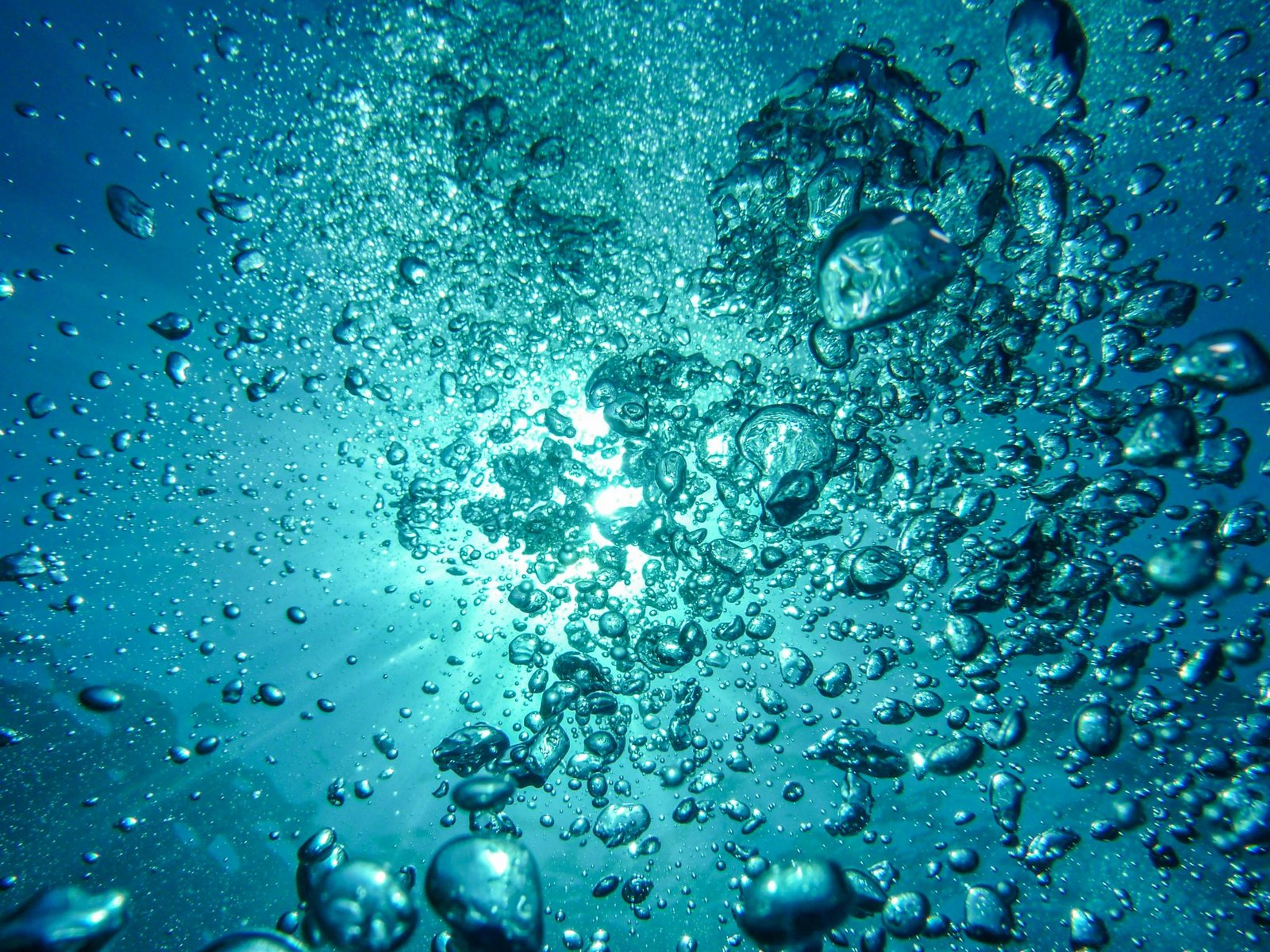Water Vs Juice – Which Is Better for Hydration
There are some affiliate links below, but they are all products I highly recommend. For more info, view my disclosure here.
Are you confused about whether water or juice is better for staying hydrated? We’ll explore the benefits and drawbacks of both options.
Discover the truth behind which one truly reigns supreme for hydration. Stay tuned to make an informed decision for your own health and well-being.
The Importance of Hydration
You should prioritize hydration to maintain your overall health and well-being. Staying hydrated is crucial for your body to function properly. Water is essential for various bodily functions such as regulating body temperature, lubricating joints, and aiding in digestion. When you’re dehydrated, you may experience symptoms like fatigue, dizziness, and headaches. By drinking enough fluids, you can prevent these symptoms and keep your body running smoothly.
Hydration also plays a vital role in maintaining your skin health. When you’re properly hydrated, your skin looks more radiant and youthful. Water helps to flush out toxins from your body, which can improve the appearance of your skin. It also helps to maintain the elasticity of your skin, preventing dryness and wrinkles.
In addition to physical health benefits, staying hydrated can also improve your mental performance. Dehydration can lead to decreased cognitive function, difficulty concentrating, and reduced alertness. By drinking enough water, you can enhance your focus, memory, and overall mental clarity.
The Role of Water in Hydration
Drinking fluids like water or juice is important for staying hydrated. However, when it comes to hydration, water plays a crucial role. Water is the ultimate thirst quencher and the most effective way to replenish your body’s fluid levels. It’s easily absorbed into your bloodstream, allowing it to reach your cells quickly and efficiently. Plus, water has zero calories, making it a healthier choice for hydration compared to juice, which often contains added sugars and calories.
Water not only quenches your thirst, but it also helps regulate your body temperature, lubricates your joints, and aids in digestion. It’s essential for maintaining proper bodily functions and overall well-being. When you’re sweating or engaging in physical activities, water is especially important to replace the fluids lost through perspiration.
Although juice can be hydrating to some extent, it isn’t as effective as water. Juice contains natural sugars, which can slow down the absorption process and may lead to a temporary spike in blood sugar levels. Juice lacks the electrolytes and minerals found in water, which are crucial for optimal hydration.
The Benefits of Juice for Hydration
When it comes to staying hydrated, it’s important to consider the benefits that juice can provide.
While water is the ultimate hydrating beverage, juice can also play a role in keeping you refreshed and quenched. One of the main advantages of juice is that it contains natural sugars, which can provide a quick source of energy and replenish electrolytes lost through sweat.
Juice is packed with vital nutrients like vitamins and minerals that can support your overall health. For example, orange juice is rich in vitamin C, which not only helps to boost your immune system but also aids in the absorption of iron.
Moreover, juice can be a tasty and more appealing alternative to plain water, making it easier for you to meet your daily fluid intake goals. However, it’s important to choose 100% fruit juice without added sugars, as some juices can be high in calories and may lead to weight gain if consumed excessively.
Factors to Consider When Choosing Between Water and Juice
Considering the nutritional content and potential calorie intake, it’s important to factor in your personal health goals when choosing between these hydrating options.
Water, being calorie-free and essential for overall hydration, is always a safe and reliable choice. It helps replenish lost fluids, maintain body temperature, and supports various bodily functions.
However, if you’re looking for added nutrients and flavors, juice can be a tempting option. While juice does provide some hydration, it’s crucial to be mindful of its sugar content and portion sizes. Some juices contain high amounts of added sugars, which can lead to weight gain and other health issues if consumed in excess. It’s recommended to opt for 100% fruit juice or dilute it with water to reduce sugar intake.
Consider your personal health goals. If weight loss or blood sugar control is a priority, water may be a better choice. On the other hand, if you’re in need of quick energy or certain vitamins and minerals, juice can be a suitable option.
Ultimately, it’s important to find a balance between hydration, nutritional value, and your individual health goals.
Hydrating With Water: Pros and Cons
To make an informed choice, it’s important to weigh the pros and cons of hydrating with water.
When it comes to hydration, water is the go-to option for many. One of the biggest advantages of hydrating with water is that it’s calorie-free and doesn’t contain any added sugars or artificial flavors. This makes it a healthier choice for those looking to maintain or lose weight.
Water is readily available and inexpensive, making it accessible to almost everyone. It also helps to quench your thirst quickly, providing instant relief.
However, there are some potential downsides to consider. Drinking excessive amounts of water can lead to hyponatremia, a condition characterized by low sodium levels in the blood. This can be particularly dangerous for athletes who may be consuming large quantities of water during intense physical activity.
Moreover, plain water doesn’t provide any additional nutrients or electrolytes, which are important for maintaining proper hydration levels. Therefore, it’s essential to consider your individual needs and circumstances when deciding whether to hydrate with water.

Hydrating With Juice: Pros and Cons
If you’re looking for a flavorful alternative to water, juice can be a refreshing option. Juice not only quenches your thirst but also provides essential vitamins and minerals. When choosing a juice, opt for 100% fruit juice without added sugars or artificial flavors. These types of juices are packed with nutrients and can be a great way to stay hydrated.
One advantage of hydrating with juice is the variety of flavors available. From orange to cranberry to grape, there’s a juice out there to suit everyone’s taste buds. Plus, these fruity flavors can make drinking fluids more enjoyable, especially for those who find plain water boring.
Another benefit of juice is its natural sugar content. While water has no sugar, juice contains naturally occurring sugars from the fruits it’s made from. This can provide a quick burst of energy and may be helpful during physical activity or to combat low blood sugar levels.
However, it’s important to remember that juice should be consumed in moderation. Due to its sugar content, excessive juice consumption can lead to weight gain and tooth decay. Juice may not be as hydrating as water due to its lower water content.




